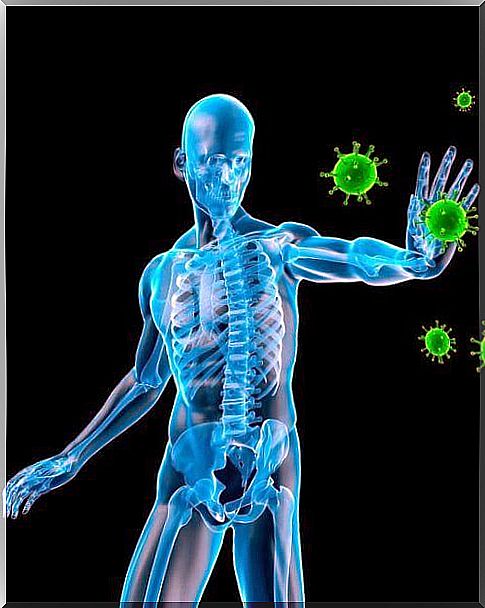7 Consequences Of Not Getting Enough Sleep
We often ignore it, but lack of sleep affects our physical and mental health. Discover seven negative consequences of not getting enough sleep.

To maintain good physical and mental health, it is essential to favor an optimal quality of sleep. You should sleep between 7 and 8 eight hours without interruption. We invite you here to find out what are the main consequences of lack of sleep.
Sleeping well allows the body to renew its physical energy and the mind to renew its capacities. So you can face each new day freshly rested.
This rest time alone fulfills a crucial function of resetting the biological systems necessary for our daily functioning. It also activates certain mechanisms of our hormonal activity.
The worry many of us face is sleep planning: poor cycle management has a number of consequences that affect quality of life.
While it is easy at first to ignore the impact of insufficient sleep on our lives and health, the problems generated over time tend to worsen. It is at our expense that we ignore the consequences of lack of sleep on our lives.
Find out about the main consequences of not getting enough sleep here.
1. High blood pressure, one of the consequences of not getting enough sleep
Lack of sleep or insomnia can affect your cardiovascular health. Lack of sleep can lead to an increase in blood pressure, forcing the heart to work harder than it should.
This is why people who sleep less than seven hours a night usually have a systolic blood pressure of around 132. The ideal is below 120.
2. Weight gain

Lack of sleep is often associated with weight gain: appetite increases during the time the body is supposed to rest.
Not getting enough sleep leads to a decrease in leptin levels, the hormone responsible for feeling full.
However, lack of sleep causes on the contrary a stimulation of appetite and an increase in the level of ghrelin, the hormone responsible for your feeling of hunger. As a result, lack of sleep whets your appetite and leads to a higher intake of calories.
3. Decrease in energy expenditure
Lack of sleep directly affects metabolic activity and causes fatigue, which affects the level of energy expenditure.
Thus, patients with sleep problems are likely to be less active, which leads to reduced calorie expenditure and fat accumulation.
If we add to this the increased appetite that also results from insufficient sleep, the risk of being overweight becomes a very likely consequence of insufficient rest.
4. Concentration problems are usually related to lack of sleep
The brain is the organ that suffers the most from the negative consequences of insufficient sleep. Lack of sleep decreases our daily cognitive performance and fatigue negatively affects concentration and brain capacity.
On the other hand, it may be that over time, lack of sleep decreases the brain’s ability to clean up plaques created by certain proteins responsible for chronic disorders such as Alzheimer’s disease.
5. A weakened immune system

The physical exhaustion caused by the lack of sleep directly compromises the immune health and, by causing a decrease in its functions. This increases the risk of respiratory illnesses and infections.
The lack of antibodies makes it easier to attack viruses, bacteria and fungi. Therefore, it is not uncommon to see the appearance of a disease after several days of sleep deprivation.
6. Lack of sleep? Stress and irritability
The impact of insufficient sleep on emotional health is almost immediate. Therefore, it is common to see a state of stress and anxiety in a person who is sleep deprived.
Lack of sleep significantly decreases the production of serotonin and endorphins, two hormones known to generate a feeling of well-being.
Instead, there is an increase in the production of adrenaline and cortisol, hormones that cause negative emotional responses.
7. Muscle weakness
During the rest period, the muscles relax, allowing them to regenerate their tissues in order to face the challenges of any new day. During this period of sleep, growth hormones are released, which also influences the formation of muscle mass.
This is why lack of sleep tends to weaken and exhaust your muscles. Straining your muscles in a period of exhaustion can lead to greater physical wear and tear. It’s best to avoid high-impact physical activity when you lack adequate, restful sleep.
Do you have sleep problems? If so, adopt habits that will make it easier for you to fall asleep.
Even if we don’t feel it at first, our body charges us the bill…. So be careful!









